At the peak of their success in business, in 1996 Franco Belgiorno-Nettis and Carlo Salteri, the Transfield patriarchs, decided to part ways. The eldest sons of both families took control and began to carve out the future.
Page Media:
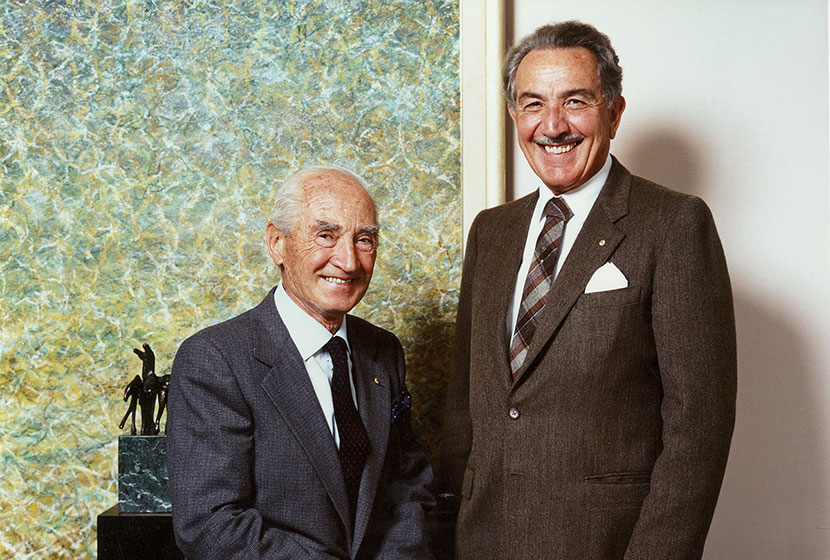
At the peak of their success in business, in 1996 Franco Belgiorno-Nettis and Carlo Salteri, the Transfield patriarchs, decided to part ways. The eldest sons of both families took control and began to carve out the future.
Page Media:
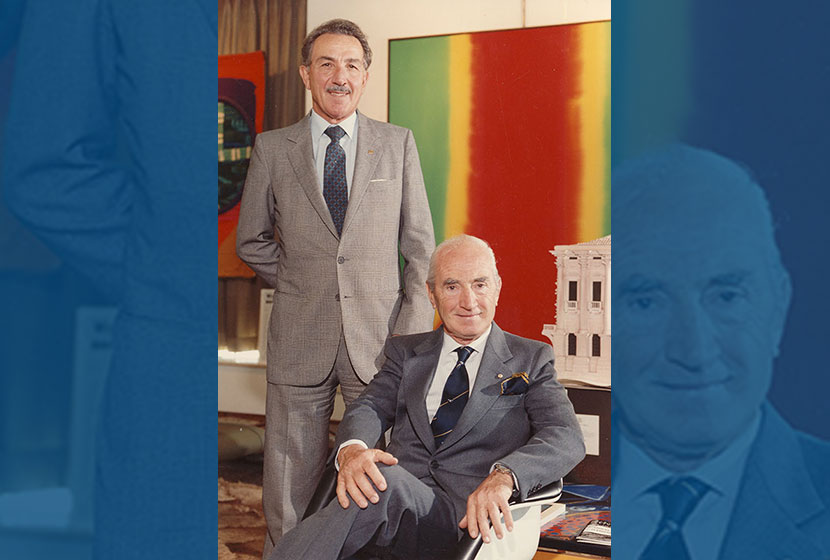
In the history of Transfield, the period between 1989 and 1996 marks the stage when the company grew exponentially, changing from being essentially a construction business into an entity continuously expanding, diversifying its activities and entering into new, wide-ranging fields such as defence, shipbuilding, power technology, services, investment and partnering with government instrumentalities in major public sector projects.
This period also marked a generational change of the guard in Transfield's management. Franco Belgiorno-Nettis and Carlo Salteri, both in their seventies, retired to make way for their first-born sons, Marco Belgiorno-Zegna and Paul Salteri. The two original partners moved to Chairmen roles and remained involved in major policy decisions.
Page Media:
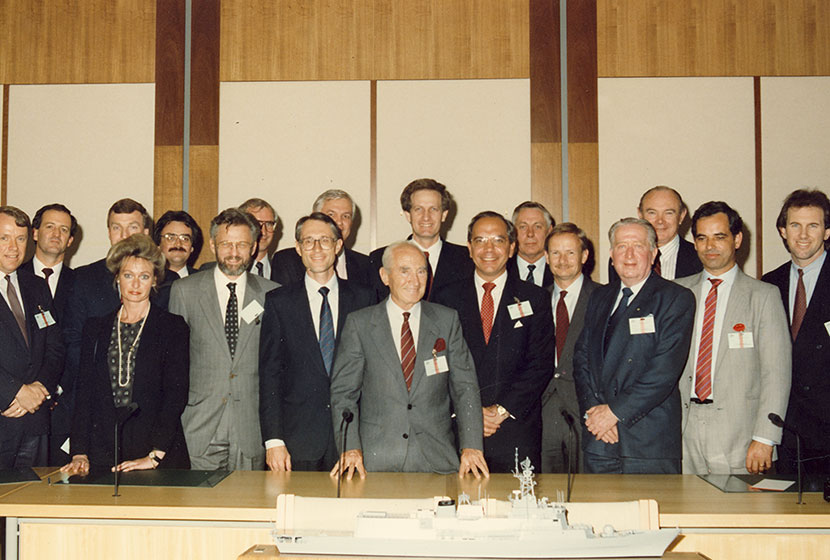
When the two patriarchs ceded their power many observers and company staff were taken by surprise. For over thirty years, they exercised undisputed control over Transfield. Their employees, many of whom had worked with the company since its inception, were accustomed to direct dealing with the two owners, seeing them around the jobs.
The elevation of the two sons to the position of Joint Managing Directors was, in some way, a well earned reward for their successful managing the acquisition of the Williamstown Dockyard and the takeover bid for AMECON.
Page Media:
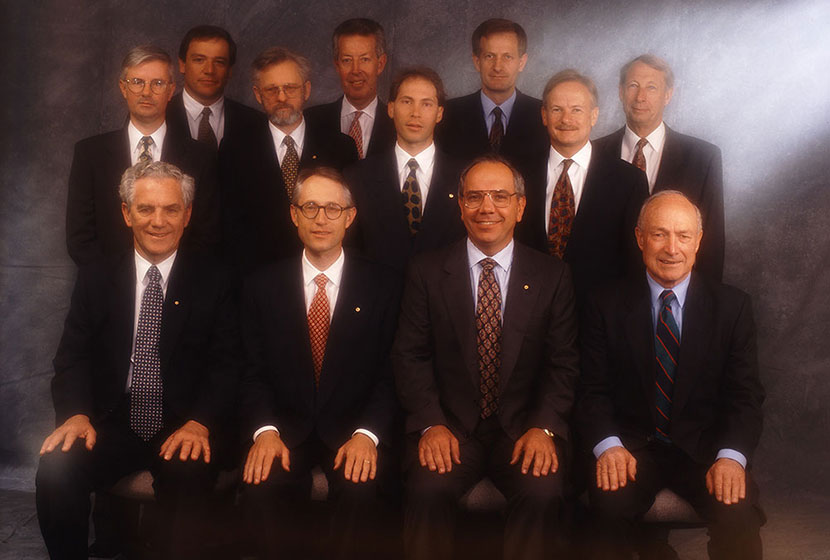
In particular, it was Marco who masterminded the deal in 1987. His doggedness and determination to make inroads into the defence industry convinced his father and Salteri to venture on the high-risk path of acquisitions, undoubtedly fraught with financial dangers. That move transformed the families' fortunes.
The new diarchy of Marco and Paul catapulted Transfield, on the strength of the defence deals, into a new class, as one of Australia's most successful private companies.
Page Media:
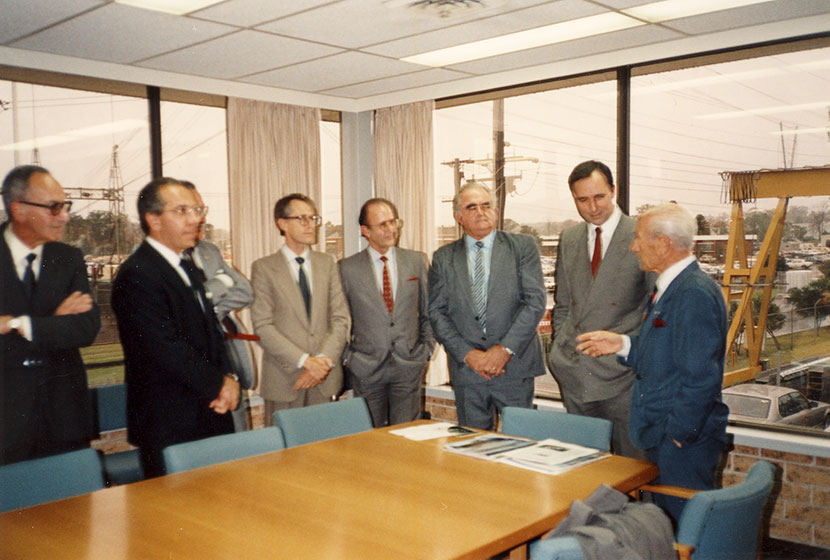
Transfield's rapid expansion and growth brought to the fore a number of problems that, previously, had not confronted management. The most serious one was the need to properly finance its activities. Refinancing, as Transfield did in 1992-93, brought stability to operations. The organisation also required a more sophisticated structure with delegated authorities provided to senior management, as well as an expanded Advisory Board with external Directors.
In successfully addressing these issues, amongst others, Marco and Paul transformed the company into a modern industrial organisation which won plaudits from the business and professional community alike. Marco was awarded the Professional Engineer of the Year Award - Sydney Division in 1996 and an AM for services to the engineering industry in 1998.
Page Media:
Yet, one could not find more different people than the two Chief Executives. Both brought to the company, as their fathers did in the past, different skills, outlooks and expectations.
But the difference in personalities began to undermine a harmonious joint management on their part. Marco was widely acknowledged as the risk-taker of the two, while Paul was more like his father, prudent, cautious and not prone to rushing into decision-making. Their relationship became dysfunctional. Soon, Marco found that he could not work with Paul and decided to break with the Salteris. Marco tried to convince his family that "we should try to go alone".
Video: Gerald Gleeson on Transfield Structure.
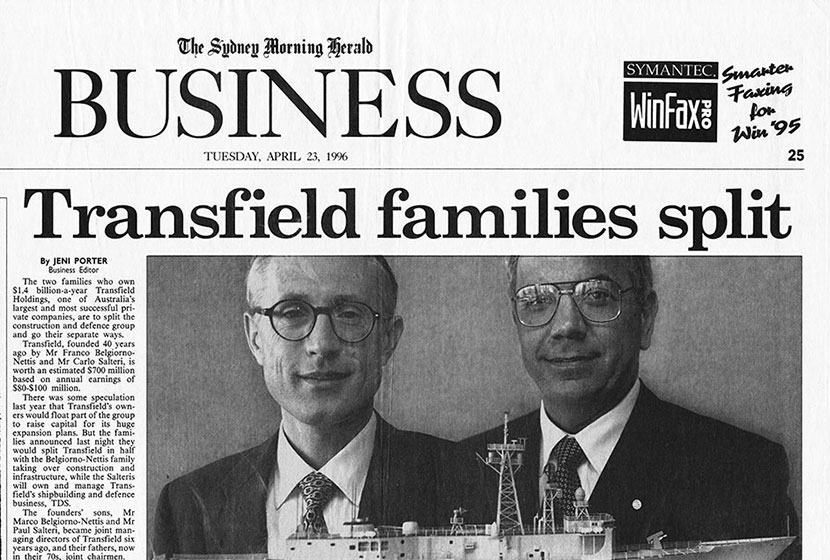
The underlying tension that was simmering for a while between the two families came to the open in April 1994, when an apparently trivial incident between the two patriarchs brought about the eventual split. A fiery debate ensued as to whether Salteri had also been a founder of the company. Belgiorno-Nettis was claiming that he was the sole founder, and that Salteri had joined later as a partner. In the heat of the discussion, mutual accusations of lies were made, and the relationship between the partners suffered irretrievably.
The compounding effect of the clash between Franco and Carlo and the conflicting management styles held by their sons, gave irreversible impetus to split the company.
Page Media:
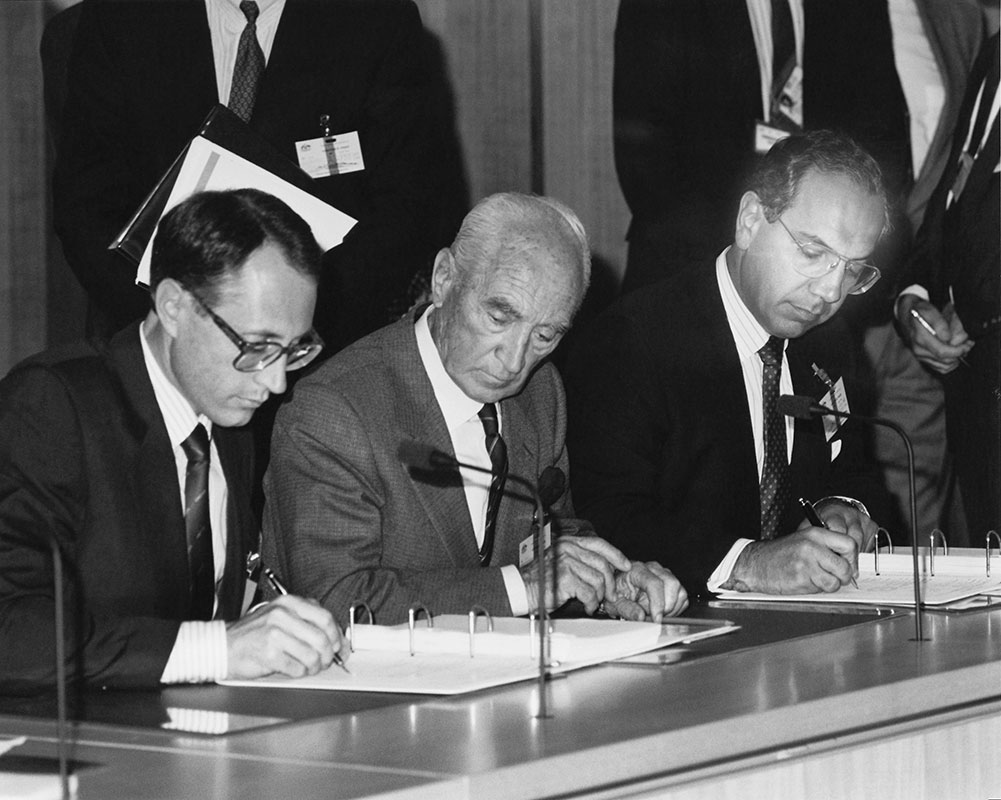
The families remained tight-lipped for almost two years about negotiations on the carve-up. Eventually, on 22 April 1996, Transfield issued a media statement announcing the break-up of its defence, construction and technology empire into two organisations, with the Belgiorno-Nettis family retaining the name Transfield.
Under the terms of the split, the Salteris took the Williamstown Shipyard and defence contracts, renaming their new enterprise Tenix, while the Belgiorno-Nettis family retained property development, engineering, infrastructure, maintenance and construction.
Page Media
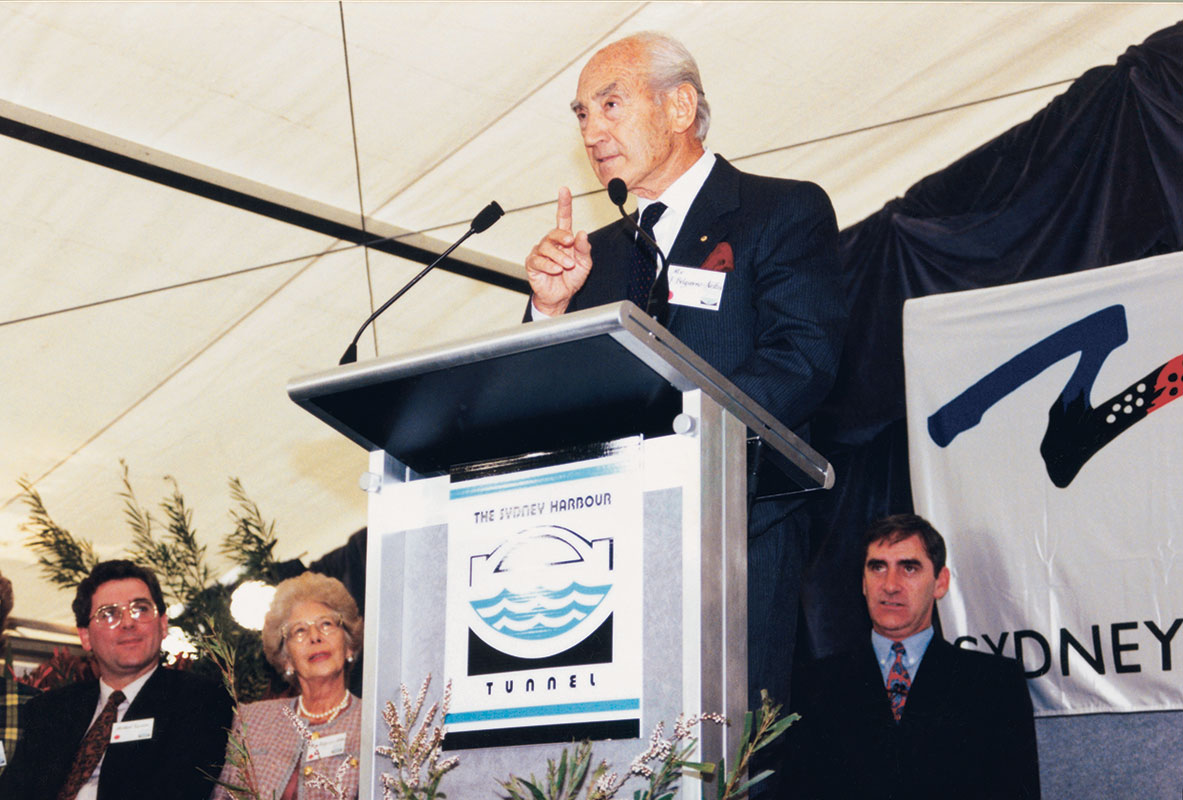
Both partners later decried the demise of the old Transfield, which had been the crucible for so many migrants in a new land, engendering a sense of belonging, particularly for those without a family in their first years.
The emigrant duo of Belgiorno-Nettis and Salteri had been successful, beyond their wildest expectations. They had created and nurtured a creature which in 1996 they could no longer identify with personally, nor control.
Page Media:
Transfield Promotional Video